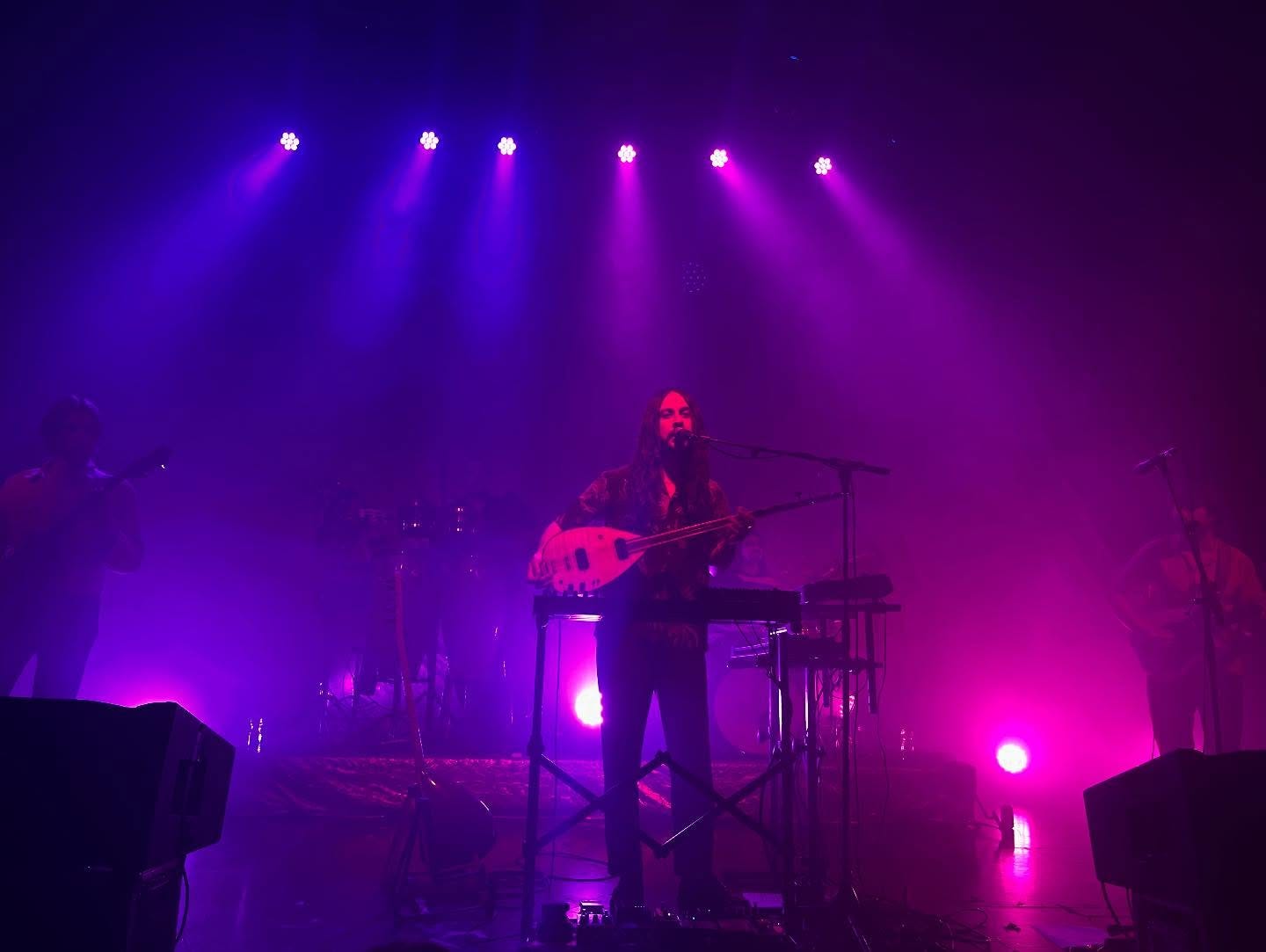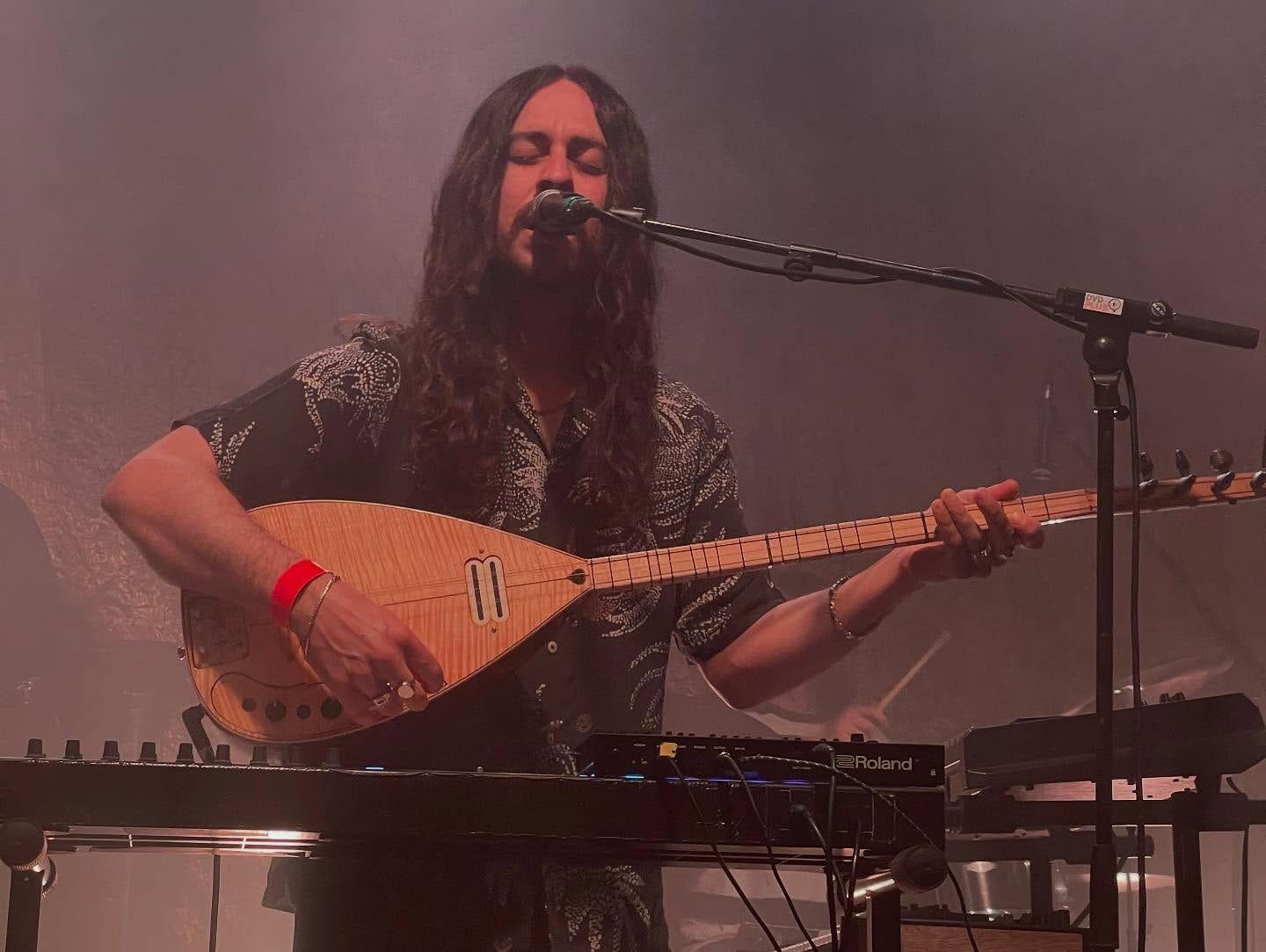Band: Altın Gün
Venue: MKC Youth Center
Location: Skopje, Macedonia
Date: May 31, 2025
Welcome to Vintage Cafe. This is my little corner for sharing the music, books, films, art, travel, and stories I love. Each post is written with care, like a note to a friend.
This June marks three years since I started this page — three years of writing, reflecting, and connecting with kindred spirits like you. To celebrate, I’m offering 20% off the subscription for anyone who wants to join the inner circle. If you’ve been thinking about supporting the page, now’s a lovely time. You’ll get access to extra posts, deeper dives, and a bit more of the soul behind it all. However you’re reading — as a subscriber or a silent companion — I’m really glad you’re here.
Some concerts sweep you off your feet with volume or spectacle. Altın Gün’s show did something more difficult: it transported. With a simple yet effective stage design featuring a golden backdrop and dynamic lighting, Altın Gün delivered a focused and engaging performance at the MKC Youth Center in Skopje. The Amsterdam-based group, whose name translates to "Golden Day" in Turkish, blends traditional Turkish folk music with vintage Anatolian rock, psychedelic funk, cosmic synth textures, and hypnotic grooves. Their sound is a reimagining of Turkish folk songs drenched in analog warmth and driven by a rhythm section that feels both ancient and utterly modern.
This was my first time seeing them live. When the band took the stage, the crowd erupted—not in a frenzy, but with the kind of appreciation that comes from people who know they’re in for something special. It was evident that the connection between the musicians was tight, and the groove was going to be the central focus.
The rhythm section, anchored by bassist Jasper Verhulst and drummer Daniel Smienk, laid down steady, looping foundations. On top of that, Erdinç Ecevit’s keys and saz added colour, texture, and Eastern inflection. The electric saz, fed through fuzz and delay, gave the music its signature blend of roots and dreamscape, something familiar yet faraway.
Keep reading with a 7-day free trial
Subscribe to Vintage Cafe to keep reading this post and get 7 days of free access to the full post archives.






